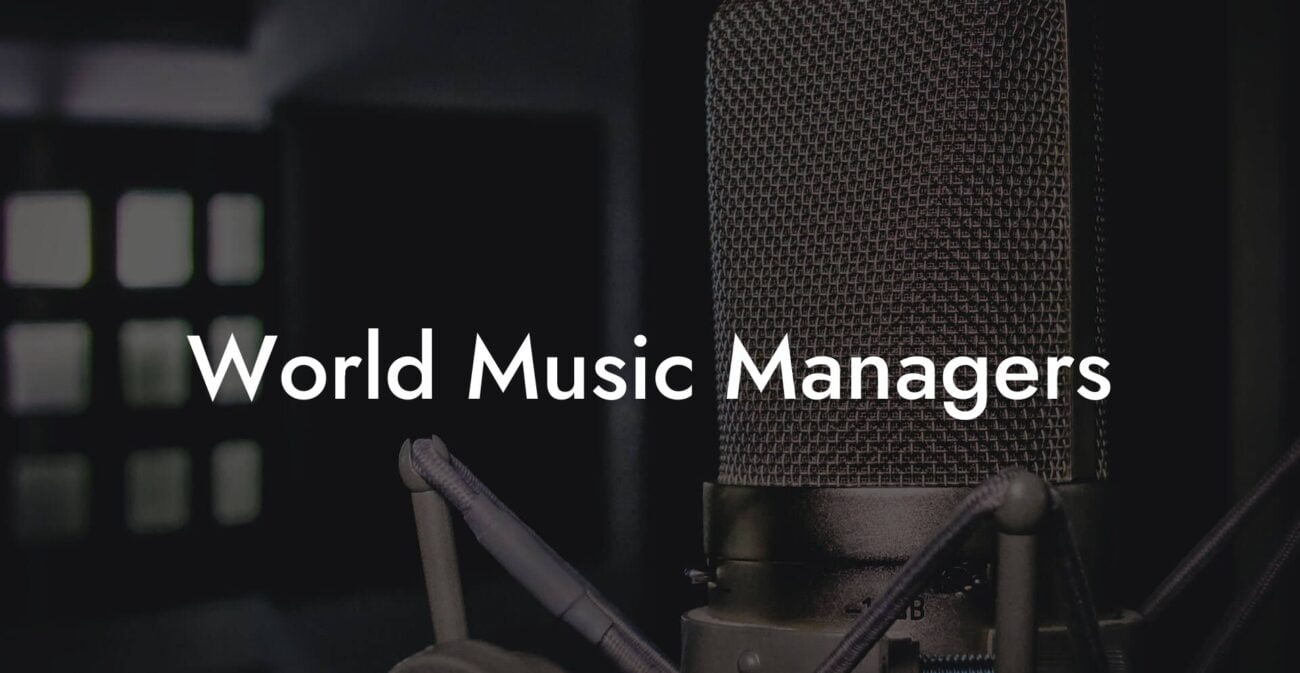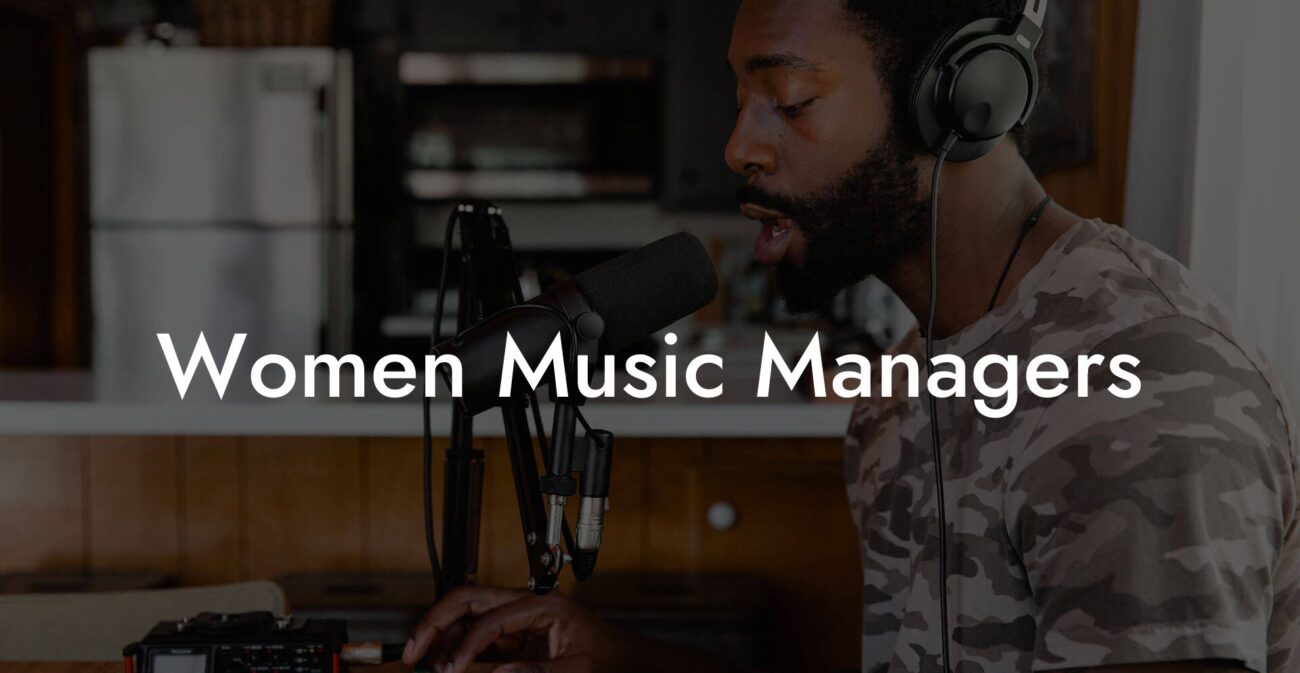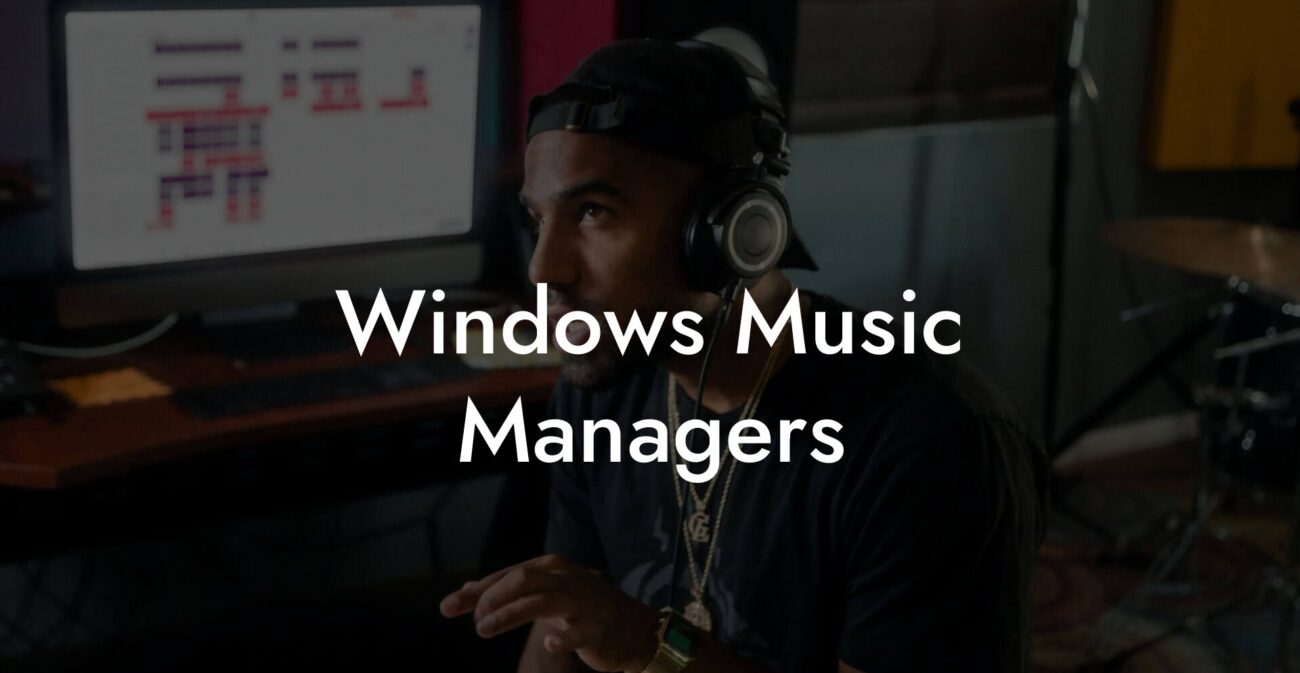Songwriting Advice
Whats a A&R

Ever wonder who’s behind those magical discoveries that turn unknown bedroom demos into chart-topping bangers? Welcome to the wild, unpredictable world of A&R (Artists and Repertoire)! Think of them as a cross between matchmakers, talent scouts, and creative masterminds who mix intuition with industry know-how to turn raw potential into pure musical gold. Whether you’re an aspiring songwriter looking to break through or a musician trying to find your unique sound, understanding the ins and outs of A&R is your backstage pass to the music industry’s secret inner workings.
Quick Interruption: Ever wondered how huge artists end up fighting for their own songs? The answer is in the fine print. Learn the lines that protect you. Own your masters. Keep royalties. Keep playing shows without moving back in with Mom. Find out more →
Quick Interruption: Ever wondered how huge artists end up fighting for their own songs? The answer is in the fine print. Learn the lines that protect you. Own your masters. Keep royalties. Keep playing shows without moving back in with Mom. Find out more →
Quick Links to Useful Sections
- Unpacking A&R: Who Are They and What Do They Do?
- A Day in the Life of an A&R Agent
- How A&R Connects Musicians to the Big Leagues
- The Evolution of A&R in the Digital Age
- Decoding the Artist’s Role: From Demo to Stardom
- A&R Myths Debunked: What They’re Not (and What They Really Are)
- Navigating Your Career: Tips for Aspiring Musicians and Songwriters
- 1. Master Your Craft
- 2. Embrace Constructive Feedback
- 3. Build a Strong Online Presence
- 4. Network with Purpose
- 5. Stay Current with Trends
- 6. Invest in Your Brand
- Resources and Community Support: Your Next Steps
- Frequently Asked Questions About A&R
- Embracing Your Journey as an Artist in the A&R Era
Unpacking A&R: Who Are They and What Do They Do?
At its simplest, A&R stands for Artists and Repertoire, but don’t let the three little letters fool you into thinking it’s a dry, corporate title. A&R representatives are the gatekeepers and cultivators of musical talent. They’re on the lookout for that next big thing, a voice, a sound, or even a quirky idea that can redefine the industry. Their job is to bridge the gap between raw, uncut talent and polished, market-ready music.
Imagine your favorite indie artist being discovered while playing an open mic night, or that unforgettable mixtape finding its way to record label executives, all thanks to an A&R rep’s discerning ear and keen sense for potential. These industry insiders do more than just scout talent; they work hand in hand with artists to develop their sound, shape their image, and ultimately build a music career that stands out in a sea of social media trends and viral challenges.
A&R reps are like the cool DJs of the industry, always in tune with the pulse of modern music, ready to spin a new track when the time is right. And if you’re using tools like Lyric Assistant to write your next hit, you’re already speaking the same language as these creative catalysts.
A Day in the Life of an A&R Agent
Ever wondered what an A&R rep’s typical day looks like? Picture a blend of coffee-fueled brainstorming sessions, endless hours of demo-listening, and meetings with clued-up producers who might just be the next big name in the industry. Their calendar is a mashup of listening sessions, live gigs, and the occasional serendipitous phone call from a promising artist who left their voicemail sounding like a future superstar.
In the morning, an A&R rep might kick things off with a quick scan of trending tunes on TikTok or Spotify to see what’s hot. The digital age has transformed their role, making them as much data detectives as human talent scouts. They spot potential not just by gut feeling, but by analyzing streams, engagement metrics, and social media buzz.
Then comes the demo review session. Imagine a cozy workspace littered with coffee cups, scribbled notes on napkins, and a playlist of experimental beats in the background. With headphones on, the rep listens intently, sometimes pausing and rewinding that one soulful line or catchy hook. When a demo stands out, it gets flagged for a follow-up meeting where ideas flow, tweaks are suggested, and the seeds of a future hit are planted.
The afternoon might be rife with collaborative meetings between artists, producers, and even marketing gurus. These brainstorming sessions aren’t just business, they’re creative jam sessions fueled by innovation, risk-taking, and yes, a good dose of humor. After all, the music industry isn’t all serious business; it thrives on a blend of professionalism and playful spontaneity.
And as the day winds down, you might catch an A&R rep at a local gig, soaking in the live energy, or scrolling through comments on a viral video to see if the next big star is under their radar. No two days are ever the same, each one bursts with unpredictability, creativity, and the ever-present hum of the musical zeitgeist.
How A&R Connects Musicians to the Big Leagues
In the grand symphony of the music industry, A&R reps are the conductors who ensure every note hits perfectly. They’re not just talent spotters, they’re relationship builders, creative advisors, and career architects. Their role is to connect musicians with the right resources, from record labels and producers to marketing teams and performance opportunities.
For many artists, the introduction to an A&R rep is the turning point, a moment when potential meets opportunity. These industry professionals have extensive networks and know exactly who to call when an artist is ready to make the leap from bedroom recording to worldwide tours and streaming stardom.
Using a blend of industry insights, market trends, and a healthy dose of intuition, A&R reps help shape an artist’s journey. They might suggest a new producer, recommend song tweaks to better fit current trends, or even encourage collaborations that spark creative alchemy. It’s like having a seasoned guide who not only navigates the rocky terrain of the music industry but does so with an eye for innovation and a heart for artistry.
For the tech-savvy musician using Lyric Assistant as their secret songwriting weapon, understanding how A&R functions can give a strategic edge. The digital age has made it easier than ever for A&R reps to find talent, and your unique sound might just be a download, a share, or a hashtag away from getting noticed.
The Evolution of A&R in the Digital Age
Gone are the days when A&R reps depended solely on physical demo tapes and industry word-of-mouth. Today, the rise of digital platforms has revolutionized their workflow, transforming how talent is discovered and nurtured. Social media, streaming services, and online music communities have become the new hunting grounds for fresh talent.
Digital tools and data analytics now play a key role in the A&R process. Platforms like Spotify, Apple Music, and even TikTok provide detailed insights into listener behavior, engagement, and demographics. This data helps A&R teams identify potential hits before they become mainstream phenomena.
In this new era, A&R reps have become adept at sifting through vast amounts of online content to spot hidden gems. They follow trends, monitor emerging genres, and even use algorithm-based tools to gauge an artist’s potential reach. For musicians and songwriters looking to get discovered, this means that every post, every lyric shared on social media, and every demo uploaded could catch the right eye, or ear.
Moreover, the integration of artificial intelligence and platforms like Lyric Assistant empower artists to refine their craft in real time. These technological advancements break down the old barrier of entry, making it possible for raw talent from any corner of the globe to be noticed by a discerning A&R rep. In the digital age, the idea of “making it” in the music business has never been more accessible.
The evolution of A&R isn’t just about technology, it’s about harnessing data to tell compelling, authentic stories. In this fast-paced, ever-changing environment, A&R reps must balance art and analytics, intuition and innovation, all while keeping their creative spirit alive.
Decoding the Artist’s Role: From Demo to Stardom
One of the most intriguing aspects of A&R is how they shepherd an artist from the initial demo stage all the way to stardom. For a budding musician or songwriter, that first demo is more than just a recording, it’s a calling card that could open the door to a vibrant career.
A&R reps work meticulously with artists to hone their sound, refine lyrics, and polish their performance. When you use a supercharged tool like Lyric Assistant to craft your lyrics, you’re already speaking the language of the professionals, tools and talent combined to create the perfect mix.
In the early stages, feedback is critical. A&R reps will offer constructive critiques on everything from melody to lyrical content. Remember, it’s not about tearing down your work; it’s about insightful suggestions that propel your music forward. They might advise on tightening your verses, experimenting with unexpected chord progressions, or even incorporating a tweak that makes your hook irresistible.
Once the fine-tuning is complete, the A&R team might assist in pairing you with a producer who understands your vision, ensuring that your recorded tracks capture both emotional depth and commercial appeal. This collaborative process is what transforms a raw demo into a finished product that resonates with audiences far and wide.
More than just technical adjustments, A&R reps often help cultivate an artist’s unique brand identity. They understand that the story behind an artist can be just as compelling as the music itself. Establishing a unique narrative is key, after all, in a world inundated with talent, your story can be the hook that grabs listeners and holds them tight.
So if you’re perfecting those clever lyrics with Lyric Assistant, keep in mind that every line you write contributes not just to your next song, but potentially to your entire career narrative. Embrace the journey, trust in the process, and let your artistry shine.
A&R Myths Debunked: What They’re Not (and What They Really Are)
There are plenty of myths about A&R floating around, and it’s time to set the record straight. One of the biggest misconceptions is that A&R reps are simply “talent snobs” waiting for the next viral sensation. In reality, these professionals serve as both creative partners and honest advisors.
Myth #1: “A&R is all about instant fame.”
In truth, building a sustainable career in music takes time, hard work, and strategic planning. A&R reps aren’t just looking for overnight successes, they’re scouting for artists with the potential for longevity. They invest time in nurturing talent, helping you evolve and adapt in a rapidly changing industry.
Myth #2: “A&R only values commercial appeal over artistic integrity.”
While commercial success is important, many A&R reps are passionate about artistry. They know that authenticity and innovation are the lifeblood of influential music. Their goal is to find a balance between marketability and creative expression, ensuring that your sound remains true to you while resonating with listeners.
Myth #3: “Networking with A&R is all about who you know, not what you create.”
Yes, building connections in the industry is important, but it’s not just about schmoozing at parties. True talent, original songwriting, and genuine creativity are what catch their attention. Tools like Lyric Assistant empower you to fine-tune your craft, giving your music the edge needed to shine in a competitive arena.
In debunking these myths, it’s clear that A&R is not a mystical, unattainable force, it’s a collaborative, dynamic role that blends creativity, strategy, and a dash of entrepreneurial spirit. So instead of worrying about fitting a mold, focus on cultivating your unique voice, because that’s what truly matters.
Navigating Your Career: Tips for Aspiring Musicians and Songwriters
Ready to make your mark in the music industry? Whether you’re a songwriter honing your verses with Lyric Assistant or a musician trying to craft a standout demo, here are some down-to-earth tips to help you navigate the labyrinth of A&R and beyond.
1. Master Your Craft
Before you can impress an A&R rep, you’ve got to perfect what you bring to the table. Keep writing, recording, and experimenting with your sound. Remember, every hit song starts as a rough draft.
2. Embrace Constructive Feedback
Whether it comes from an A&R rep, a seasoned producer, or even your buddy who knows a thing or two about music, constructive criticism is your best friend. Use feedback as a tool for growth rather than a personal critique.
3. Build a Strong Online Presence
In this digital era, your social media profiles, YouTube channel, and streaming platforms are extensions of your artistry. Showcase your creativity, engage with your community, and let your authenticity shine through your online persona.
4. Network with Purpose
Attend local gigs, industry panels, and music festivals. Engage with fellow musicians, producers, and yes, even A&R reps when the opportunity arises. Networking isn’t just about trading business cards, it’s about forming genuine connections.
5. Stay Current with Trends
The music industry is notorious for its rapid changes. Stay updated with current trends not to mimic them, but as a source of inspiration to innovate and evolve your sound. Dive into streaming charts, follow emerging genres, and see how technology is reshaping music production.
6. Invest in Your Brand
Beyond the music, think about your image and story. A compelling narrative can set you apart in the eyes of A&R representatives and the listening public alike. Be authentic, be creative, and let your unique personality come through.
These tips are not golden rules to guarantee instant success, but rather navigation tools for the winding road that is a music career. Keep your passion sizzling, your lyrics raw, and don’t be afraid to experiment, because sometimes, the most unexpected paths lead to the biggest breakthroughs.
Resources and Community Support: Your Next Steps
Feeling inspired? Whether you’re just starting out or looking to elevate your music career, remember that you’re not on this journey alone. The music community is buzzing with resources, collaborative opportunities, and mentors who can help guide you through the intricacies of the industry.
For instance, utilizing innovative platforms like Lyric Assistant can help you kickstart the creative process by generating lyric ideas, offering wordplay suggestions, and even helping you structure your songs. It’s like having a co-writer available 24/7, always ready to brainstorm that catchy hook or refine your verses.
Consider joining online communities, local songwriting groups, or virtual classes where you can connect with like-minded artists. Attend workshops, webinars, and industry meetups to sharpen your skills and learn firsthand from experienced professionals. These collaborative spaces not only provide invaluable feedback but also open the door to potential connections with A&R reps and other industry insiders.
And don’t forget the power of social media. Platforms like Instagram, TikTok, and YouTube can be excellent avenues for showcasing your talent, getting noticed by industry professionals, and even sparking your next viral moment.
Your creative journey is uniquely yours, filled with ups, downs, late-night writing sessions, and moments of pure musical magic. Embrace those moments, lean on the community for support, and never be afraid to ask for guidance. In this era of digital connectivity, every like, comment, or share could be the first step towards your breakout moment.
Frequently Asked Questions About A&R
Navigating the music industry can spark a ton of questions, especially when it comes to understanding the role of A&R. Here are some of the most common questions we get from aspiring musicians and songwriters:
1. What exactly does A&R stand for?
A&R stands for Artists and Repertoire. It’s the division within a record label or music company responsible for scouting new talent and overseeing the development of an artist’s music.
2. What does an A&R rep do on a daily basis?
An A&R rep scours the musical landscape by listening to demos, attending live shows, engaging with social media trends, and collaborating with producers and other industry professionals to help turn raw talent into marketable music.
3. How do A&R agents discover new talent?
Today, discovery happens on many fronts, including live gigs, streaming platforms, social media, and online music communities. A&R reps combine data insights with gut instinct to spot emerging trends and hidden gems.
4. What role does an A&R rep play in an artist’s career development?
Beyond discovering talent, A&R reps work closely with artists to refine their sound, connect them with producers, and guide them in creating a cohesive brand and musical identity.
5. Has the role of A&R changed in the digital age?
Absolutely. With the influx of digital platforms and social media, A&R reps increasingly rely on data analytics alongside their creative intuition to discover talent and gauge an artist’s potential reach.
6. How can I get the attention of an A&R rep?
Focus on perfecting your craft, whether it’s songwriting, performing, or producing. Build a robust online presence, network within the industry, and use innovative tools like Lyric Assistant to polish your music. Authenticity and consistency go a long way.
7. Do A&R reps only work with major labels?
Not necessarily. While many A&R reps operate within major labels, there are independent A&R agents and talent scouts who work with emerging artists outside of the traditional system.
8. What skills make a successful A&R professional?
A successful A&R rep needs a blend of intuitive musicality, business acumen, and strong networking skills. They must balance creative vision with pragmatic strategies to nurture talent.
Embracing Your Journey as an Artist in the A&R Era
The path to musical success is no linear line, it’s a vibrant tapestry of creative bursts, setbacks that fuel growth, and those unpredictable moments when everything clicks just right. In the A&R era, where digital breakthroughs can propel a bedroom demo into the stratosphere overnight, the role of authenticity reigns supreme.
As you navigate your musical journey, keep in mind that every lyric you pen, every chord you strum, and every demo you drop is part of your personal evolution. The industry’s A&R professionals aren’t there just to sign you on a dotted line; they’re there to help you flourish, challenge your creative norms, and ultimately carve out a space where your unique voice can shine.
So, if you’re out there hustling, experimenting with new sounds, collaborating with fellow artists, or using innovative tools like Lyric Assistant to craft your next lyrical masterpiece, know that you’re playing in a dynamic, ever-changing arena. Embrace the ups and downs, learn from every encounter, and let each experience add a new layer to your musical identity.
The journey is as important as the destination, so celebrate your progress, dust off those rejections, and keep writing even when it feels like you’re only talking to your bedroom walls. After all, every iconic artist has a story filled with gritty beginnings and triumphant comebacks. Your moment might be just around the corner, ready to be discovered, nurtured, and elevated by the collaborative spirit of A&R and the wider music community.
Here’s to the dreamers, the night owls, and everyone who dares to turn their lyrical whispers into legendary anthems. Your music matters, and the industry is waiting to hear your story.












